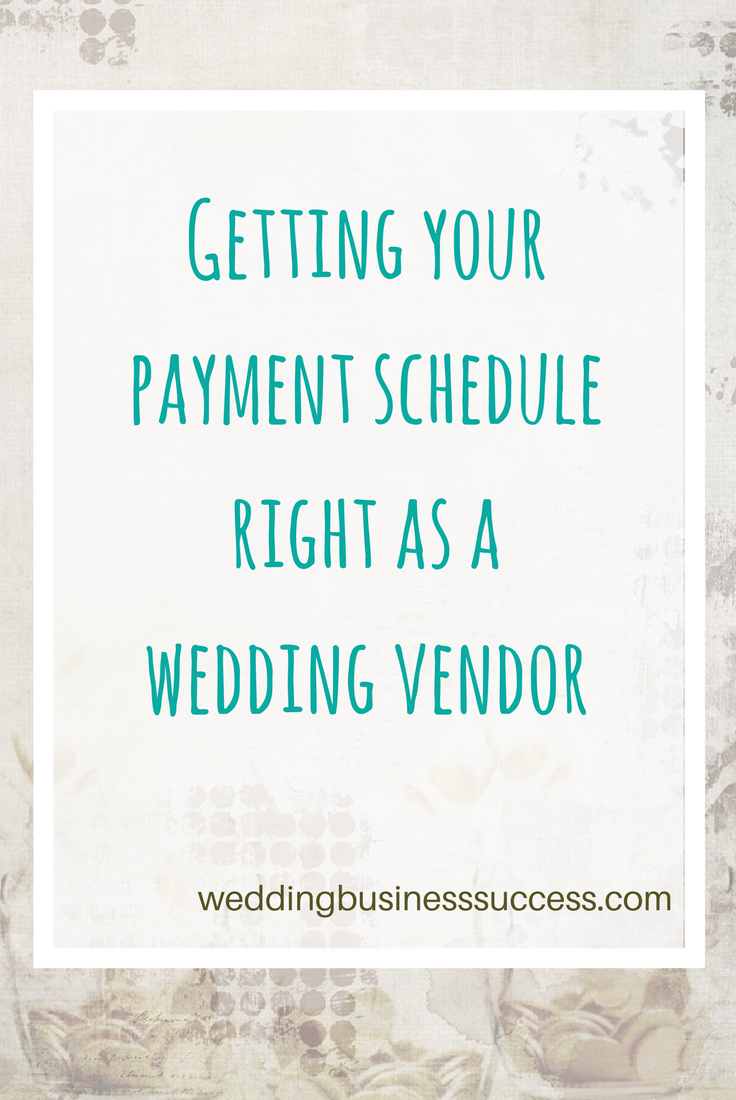For many wedding suppliers there is a long time between taking a booking and delivering the service. So it’s normal to take payment in stages. A deposit when they first book and one or more payments along the way.
And it’s vital for the profitability of your business that you put together a payment plan that is both acceptable to your clients and protects you if things don’t go to plan (after all, not every engaged couple makes it up the aisle…. ).
Here are the key things to consider when deciding on your schedule.
Expenses timetable
Work out what you need to spend and when for a typical booking. This needs to include your time as well as purchases like stock.
You’ll want to be sure you have sufficient funds to cover upfront costs and be able to pay yourself.
Loss of business
For many suppliers the number of weddings you can do is limited. So if a couple cancel close to the wedding date, there’s not much chance you’ll be able to find another client for that date.
It’s perfectly reasonable to factor this into your terms and to charge couples for the time you would have spent on the day (and the profit you would make).
Accepted practice
Take a good look at other businesses and see what terms they offer. If necessary you can do a bit of mystery shopping and pretend to be a prospective client (or get a friend to do it for you) – but many businesses will have this information available online or in their brochure.
Also think about what will seem reasonable to the client. Asking for full payment well in advance of delivering the service may be nice for your cashflow, but it can make clients nervous and wonder if you are in financial trouble.
Practicalities
If possible, your payment terms should match your cancellation terms. It’s one thing to say that couples must pay in full if they cancel less than 1 month before the wedding, but if you haven’t collected the money already, it’s not going to be easy to get them to pay up.
Consider what’s going to be smooth and easy to manage for both yourself and your customers. Monthly instalments might help couples manage their finances, but you won’t want to be manually emailing invoices every month for a large number of clients and then chasing the non-payers.

Communication
It’s not always easy to talk about money (especially if you’re British!), but it’s essential to avoid misunderstandings.
Make sure your payment terms are included in your contract (in nice, easy to understand language) and also go through them verbally for your clients when they book.
Sending friendly payment reminders will help you get those interim payments in on time.
And DO stick to your terms. If someone is having trouble paying you it’s fine to look for a compromise, but don’t just carry on and hope payment turns up sometime – it probably won’t. If you do amend the schedule, then this should be agreed in writing too.

